Why Is My Dog Following Me Everywhere Suddenly?
At some point, most dog owners will experience their dog at their side, seemingly non-stop. While it can be cute and endearing at first, over time, it may wear on your nerves or even cause you to trip if their presence is unexpected (I know this has happened to me more than once early in the morning!)
Most dogs are incredibly loving animals, and a lot of the time, their love for you and your attachment may lead them to follow you around your home. But, there are a few other reasons that might cause you to ask, “Why is my dog following me everywhere?”
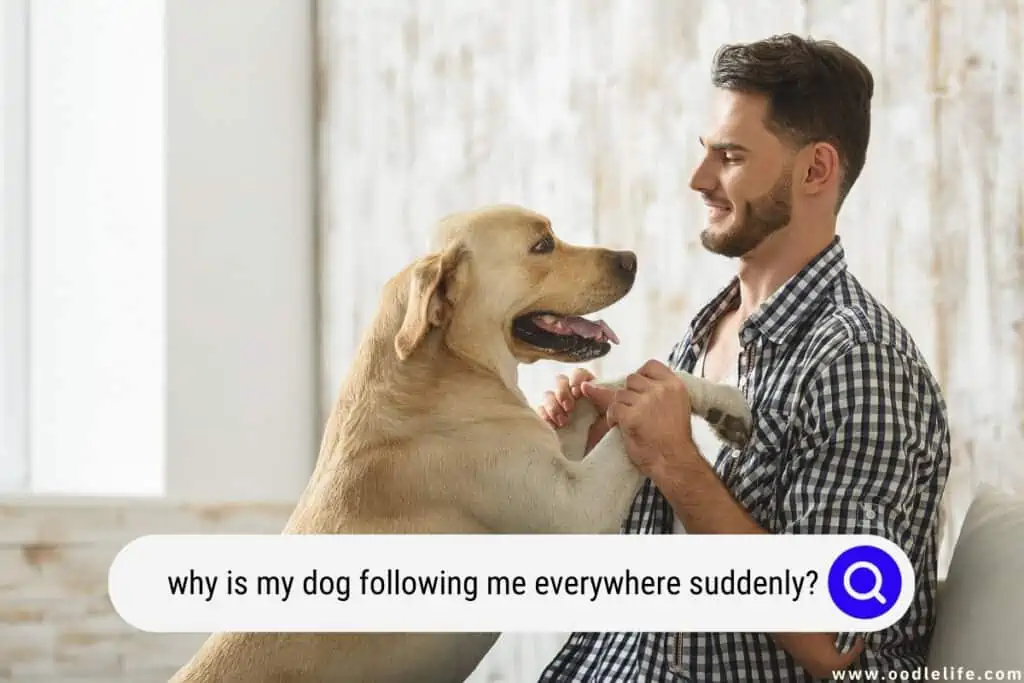
Over-Attachment
Over-attachment to you, the owner, is the main reason your dog may suddenly follow you around the house. Your pup may have become fixated on you, their primary caregiver, and want to spend as much time as possible around you. You supply them with everything they want and need, from food and water to walks and cuddles.
Dogs living in a single-owner household without any other animals may feel as if their entire world revolves around you. While their over-attachment to you isn’t necessarily an issue, you may find that bringing your dog new toys, visitors, and even a brother or sister may help vary their daily routine.
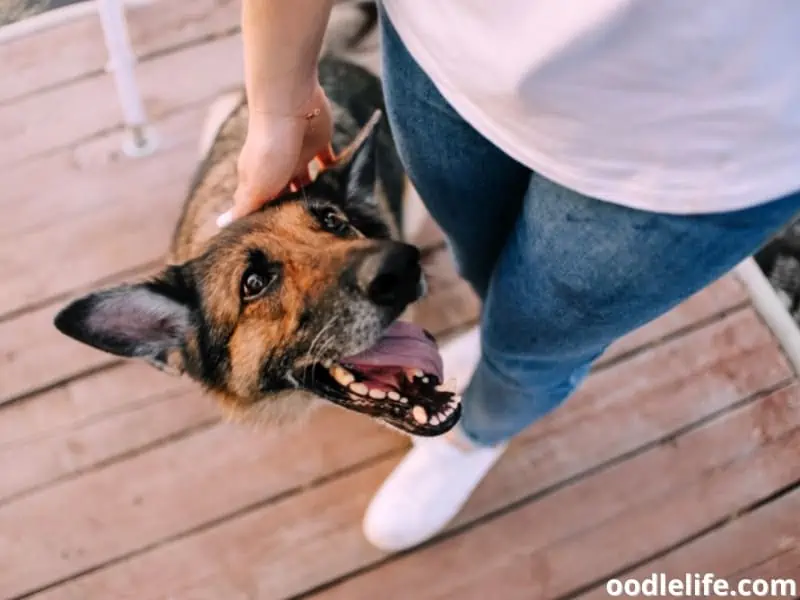
They Want Something
A desire for something is the second most common reason your dog may have started following you around the home. They may think that it’s time for them to take a walk, be fed, or just have more attention paid to them. Some dogs are more food-oriented than others, and your pup may be one of them!
The best way to remedy this behavior is to keep a predictable schedule that your dog can come to understand as part of their life.
If you’re constantly changing the time of day you walk or feed your pup, then they will be nearby, trying to will you to pay attention to them throughout the day. But, if they know that walks happen in the morning and dinner is always at 6:00 P.M., they’re more likely to spend the rest of the day thinking about something else!
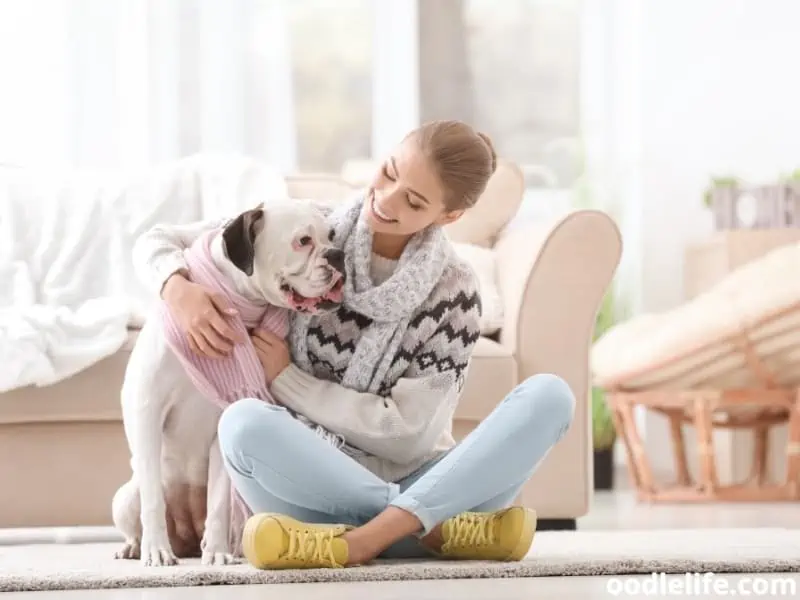
Stress
If your dog is following you around the house, it may be due to increased stress levels. Worry can make any pet act unusually. If you think they might be going through a particularly stressful time, try to be understanding of that and do what you can to put them at ease.
They know that you’re the only one that can make them feel better, and they have no real way to communicate that with you. If you can, alleviate the stressors in their life. If they hate loud sounds, a certain visitor, or something else specific, there are ways to decrease the presence of these worrying experiences in their lives.
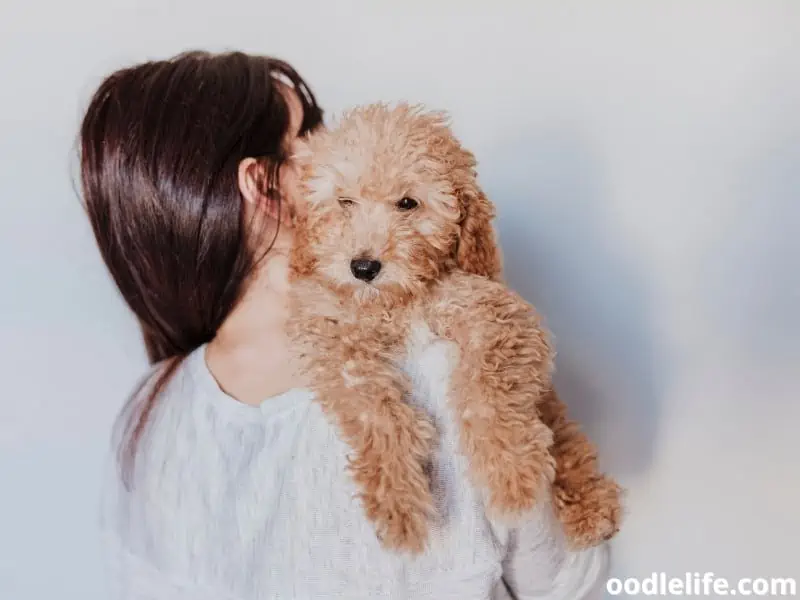
Separation Anxiety
Separation anxiety is another common reason your pup may be glued to your side. As their primary caregiver, you’re the one who they turn to for anything they need. If they’re lonely, you’re their main source of company, and if they’re hungry, you’re the one who supplies the food.
It’s pretty easy to understand why they might feel some anxiety when they’re away from you.
Your absence likely impacts your dog more than you realize. If you think that separation anxiety is causing your dog to follow you around, you could try to introduce new stimulation into their lives. Or do anything you can to make them realize they’ll be taken care of, even when you’re away from home.
This solution could mean using an automatic feeder or even inviting other dogs over for more social time.
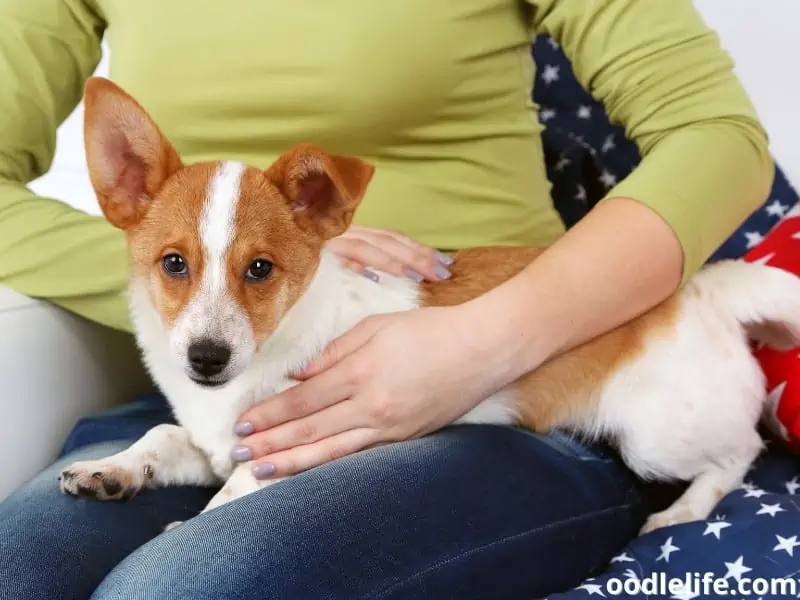
Health Problems
Unfortunately, health problems are another reason your dog might be following you around. They have very few ways to communicate with you, and following you is one of them.
If they’re feeling sick or have an injury of some kind, they may want to stick by your side at all times, hoping that being near you (as the primary caregiver and source of comfort) will make them feel better. They also may be trying to communicate to you that something is wrong but do not have the words to do it as humans do.
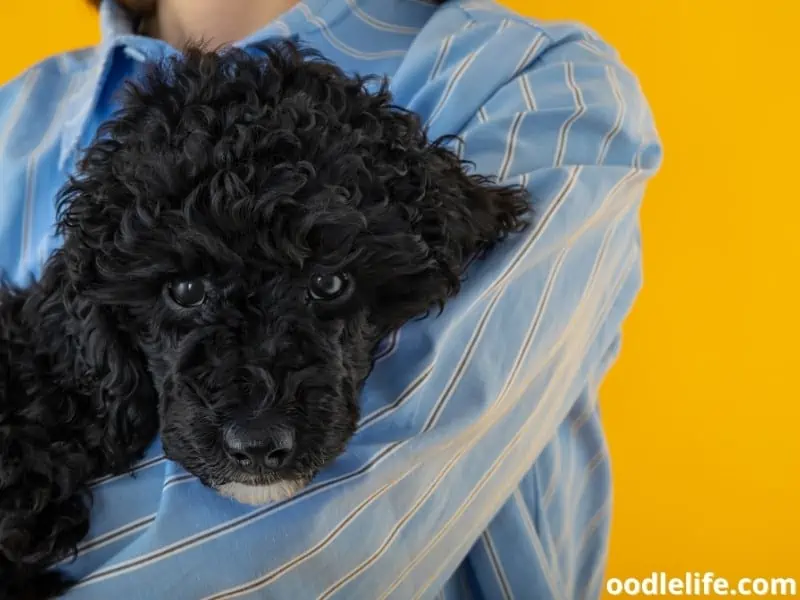
Fear/Nervousness
Is your dog always nervous or fearful of new people, animals, sounds, or events? If so, it’s likely that their nerves are getting the best of them and that by staying by your side at all times, they can soothe their worries.
You’re the one who takes care of them in times of need and protects them. If they feel at all threatened by something out of their control, they’re going to turn to you. Unfamiliar animals or people are often the cause of increased nervousness.
Your dog may also start following you if you’ve made a big life change, like moving to a new home.
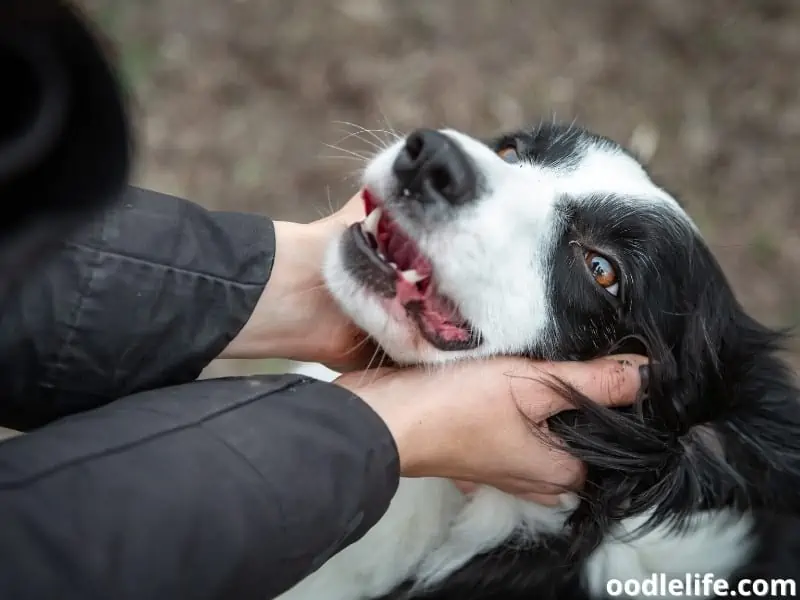
Previous Behavior/Positive Reinforcement
In the past, you likely rewarded your pup for following you or staying close to you. For example, if you leash-trained your dog and taught them that pulling, or moving away from you, is something they should avoid, they may be applying that rule to everyday life. They could be expecting positive reinforcement, like a treat, a belly rub, or even a “good boy!” for being next to you all the time.
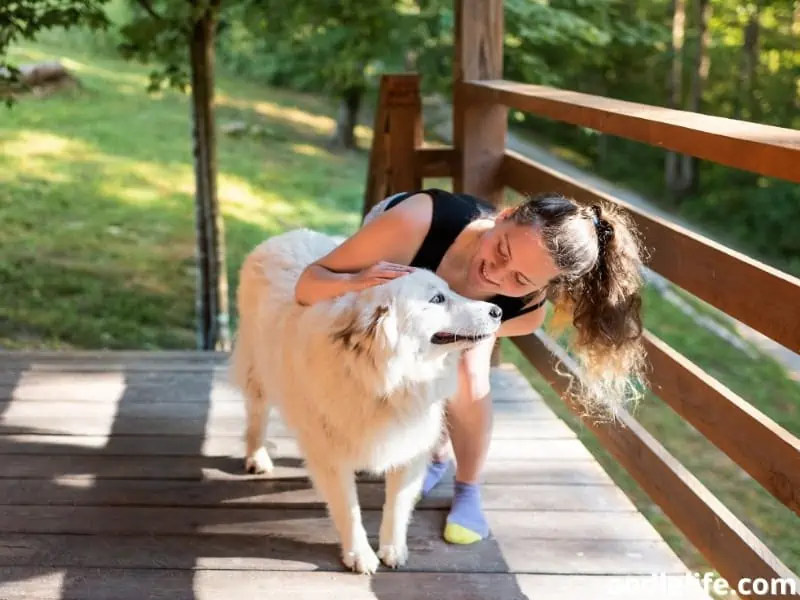
Aging
Aging is another common reason that dogs follow their owners around. Dogs are well-aware of their decreased capacity to protect themselves and you as they age. If your pup is getting up there in years, they may feel more at risk from external threats, like loud noises and new people.
Their new vulnerability may make them more fearful or nervous daily and lead them to want to be by your side. They’re very loyal animals and may become more so over time as they grow to see you as an integral part of their life.
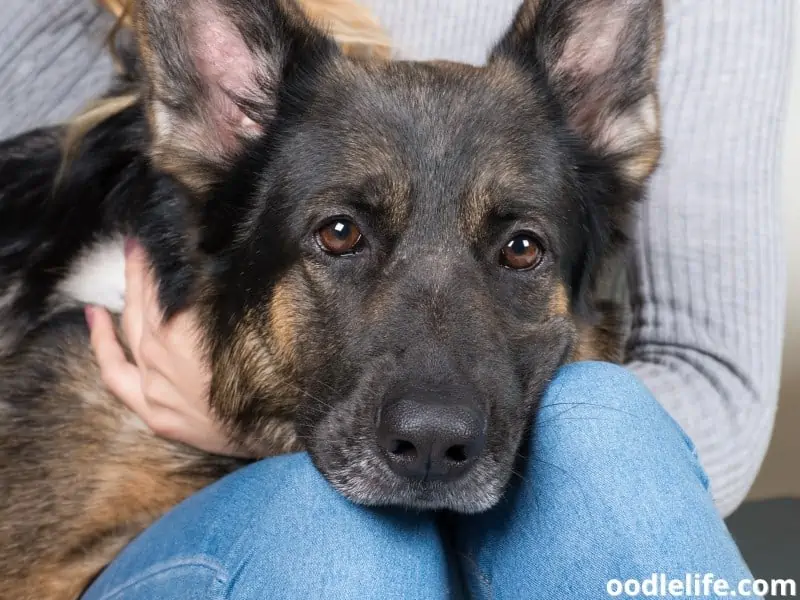
Seasonal Behavior
Seasonal behavior in female dogs is another reason your pup doesn’t seem to want to leave your side. During the summer, female dogs can be extra clingy if they haven’t been spayed. It’s highly recommended to spay or neuter your animals, even if they aren’t exhibiting clingy behavior!
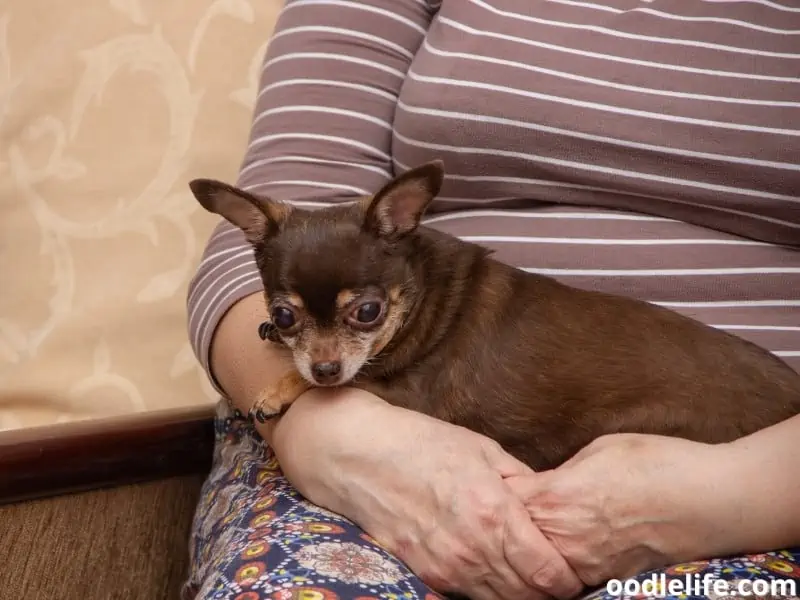
Should You Be Concerned About Your Dog Following You?
In general, no, you shouldn’t be concerned if your dog is following you. But, you should also be aware that it’s not always just your dog’s love and appreciation of you that’s inspiring them to stick by your side.
There are a variety of reasons that suddenly, you can’t seem to go anywhere without tripping over your pup. If they’re aging, exhibiting increased nervousness, or any worrying signs of ill health, don’t write off their clingy behavior as a cute or slightly annoying habit that will eventually disappear.
They could be trying to communicate something to you about how they’re feeling or what they’re experiencing on a day-to-day basis. You’re the only one with the ability to help, so sticking by your side until you do so makes sense. It’s always better to be safe than sorry and take your dog for a check-up.
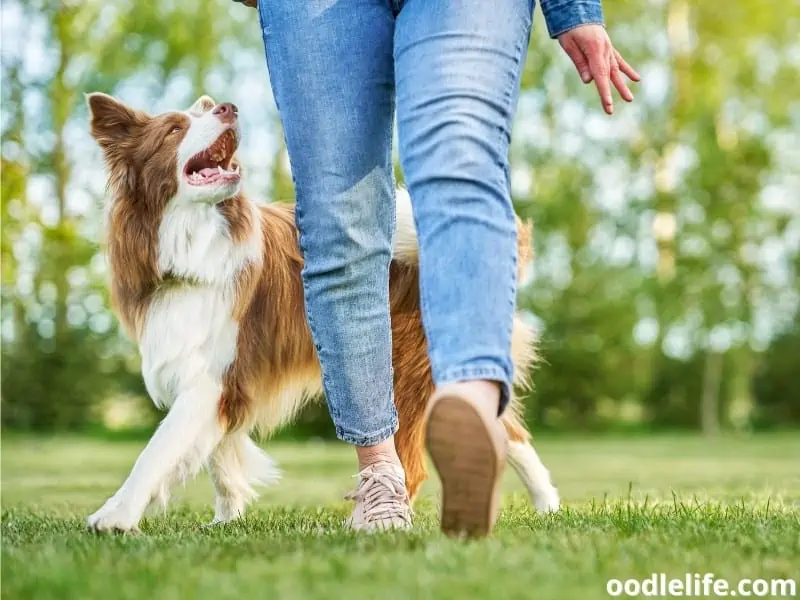
How To Make Your Dog Stop Following You Everywhere?
When my dogs go through clingy phases I want to pull my hair out and scream, “Why is my dog following me everywhere?” Luckily, I’ve found there are a few ways to might limit their behavior.
Reduce Anxiety
Commonly this kind of behavior is related to nerves or separation anxiety. Dogs are very affected by time away from their owners, most likely more so than you realize. Your pup might be worried that you’re going to leave, and by keeping you in sight at all times, they can feel more relaxed.
The best way to increase their confidence and help your dog feel more independent is to reinforce the opposite behavior. If your dog spends time away from you, reward them with a treat or belly rub. If your dog seems to be enjoying themselves away from you, let them!
This confidence will help them deal with any period of time that the two of you are away from one another.
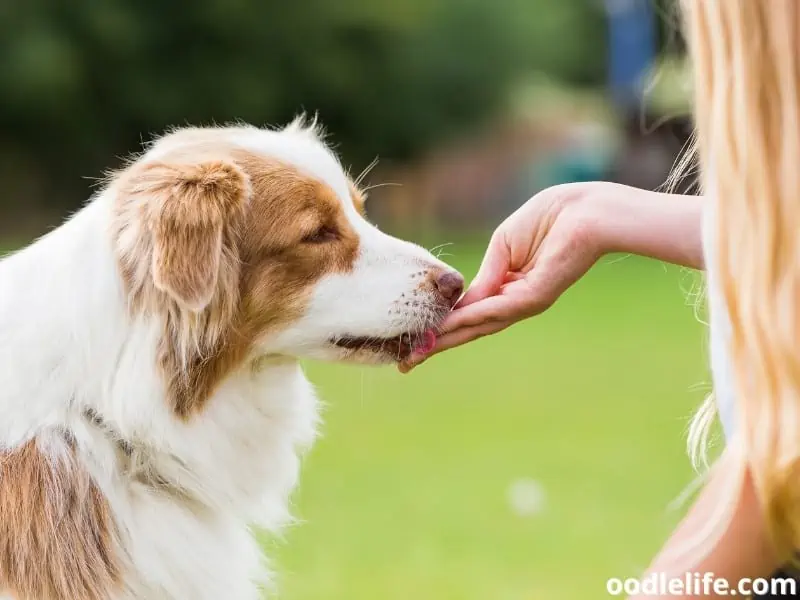
Reduce Stress From Change
Sudden life changes may also be affecting your dog. Some changes, like a move, are impossible to rectify for your pup’s sake. But, there are a few things to keep in mind to make sudden changes easier for your dog to handle.
If there is someone new in the home, you’ve adopted a new animal or made another at-home change, make sure to keep as many things the same as possible. Keep all the same toys around and, if possible, keep your pet’s food and water in the same place.
Maintaining the same daily routine is also important. If before the life change, you took your pup on a walk at 7:00 A.M., make sure you continue to do so. Keeping your dog’s life as predictable as possible will make your nervous pup feel safer and willing to spend time away from you.
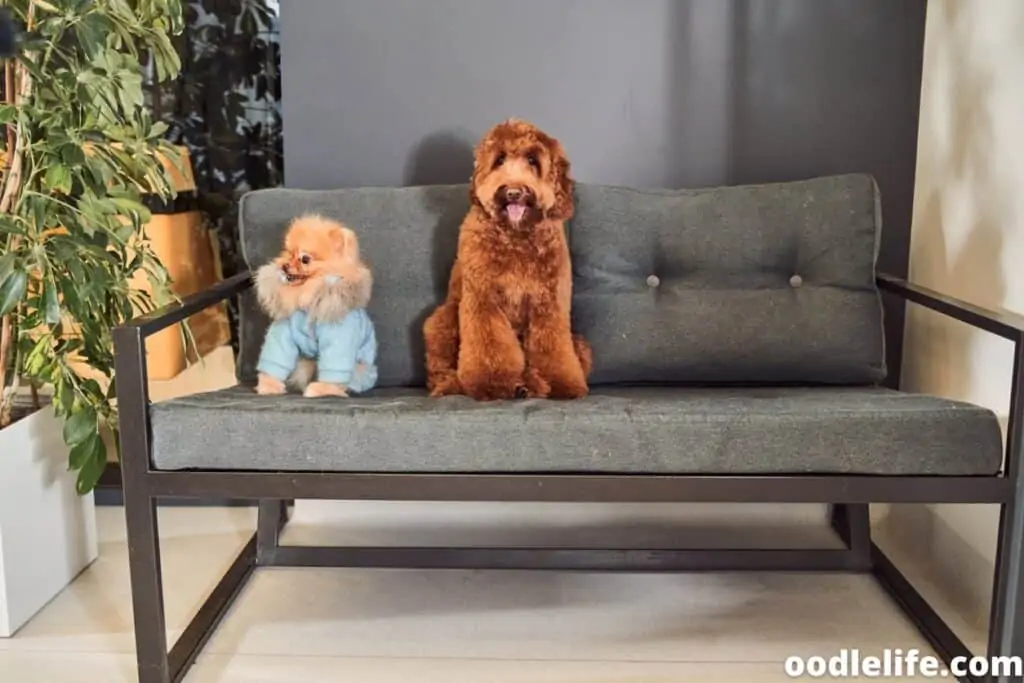
Wrap Up
If you’ve recently been asking, “Why is my dog following me everywhere?” find solace in the fact that clinginess is a trait many dogs take on from time to time, and it’s usually temporary. If you have a velcro dog on your hands, first look for signs of distress. Once you’ve corrected the distressing circumstances or out-ruled the cause, you can award your dog for independent behavior.
Shortly, you should find that you have some time to yourself again.